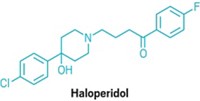Advertisement
Grab your lab coat. Let's get started
Welcome!
Welcome!
Create an account below to get 6 C&EN articles per month, receive newsletters and more - all free.
It seems this is your first time logging in online. Please enter the following information to continue.
As an ACS member you automatically get access to this site. All we need is few more details to create your reading experience.
Not you? Sign in with a different account.
Not you? Sign in with a different account.
ERROR 1
ERROR 1
ERROR 2
ERROR 2
ERROR 2
ERROR 2
ERROR 2
Password and Confirm password must match.
If you have an ACS member number, please enter it here so we can link this account to your membership. (optional)
ERROR 2
ACS values your privacy. By submitting your information, you are gaining access to C&EN and subscribing to our weekly newsletter. We use the information you provide to make your reading experience better, and we will never sell your data to third party members.
Diagnostics
A test for chronic fatigue syndrome
Potential biomarker found for hard-to-diagnose disease
by Bethany Halford
May 4, 2019
| A version of this story appeared in
Volume 97, Issue 18

Scientists have potentially identified a biomarker for chronic fatigue syndrome (CFS), sometimes called myalgic encephalomyelitis (ME), and used it to create a blood test for the disease. According to the Centers for Disease Control and Prevention, as many as 2.5 million people in the US have ME/CFS, which is characterized by overwhelming fatigue that’s not improved by rest. There are currently no simple tests doctors can use to diagnose ME/CFS; instead, their diagnoses are based on symptomatic criteria. Researchers led by Rahim Esfandyarpour of the University of California, Irvine, and Ronald W. Davis of Stanford University hypothesized that they could use cell stress responses as the basis for a possible diagnostic. They collected red blood cells from 20 healthy volunteers and 20 people with CFS and exposed the cells to salt-induced osmotic stress forces. Then, using a nanoelectronic needle array, they measured how the blood cells in a salty solution impeded an electrical current. There was a distinct difference in the cells’ electrical impedance. This suggests a diagnostic signature for the disease, although the authors are still working out the mechanism (Proc. Natl. Acad. Sci. U.S.A. 2019, DOI: 10.1073/pnas.1901274116). Esfandyarpour and Davis’s team also applied a machine-learning algorithm to the results to improve the potential diagnostic. The researchers say the test they’ve developed could also be used to screen drugs for treating ME/CFS.



Join the conversation
Contact the reporter
Submit a Letter to the Editor for publication
Engage with us on Twitter